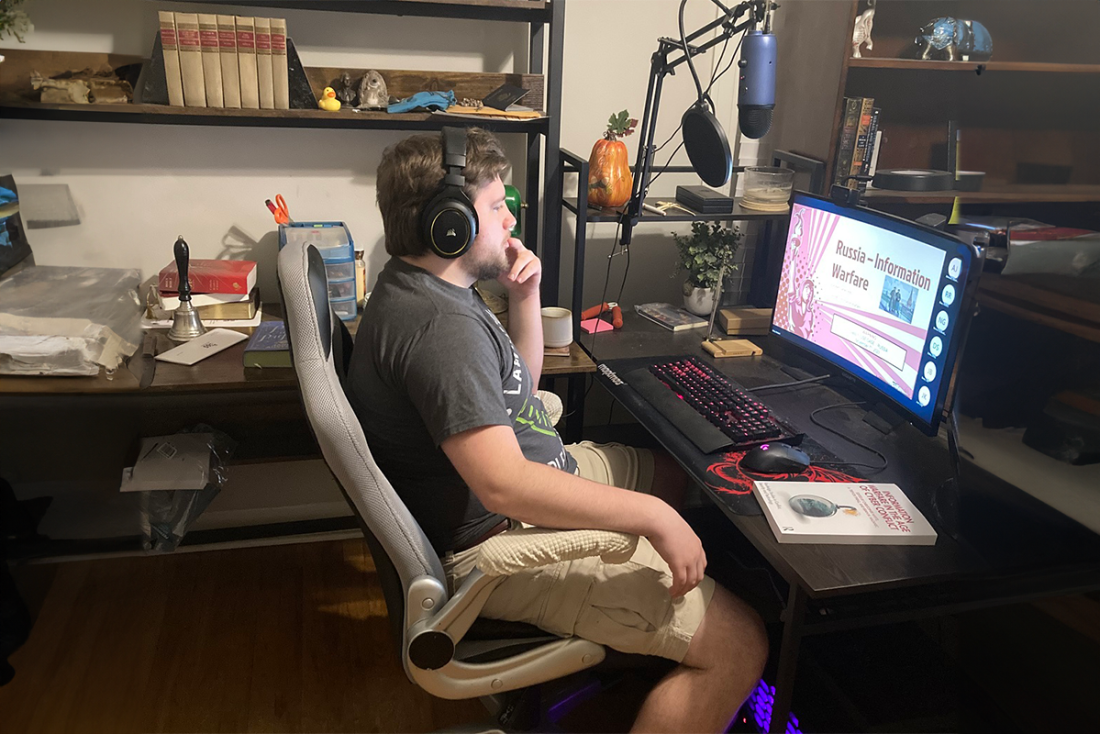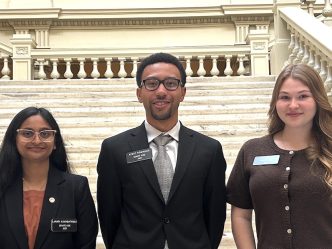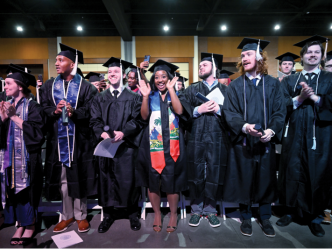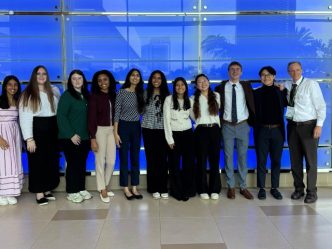For Grantham Sandlin, his path to earning his Masters of Arts in Intelligence and Security Studies at Augusta University has been a winding and sometimes rocky road. He has always enjoyed reading, but the college life wasn’t necessarily a priority. Now he’ll be graduating with a master’s degree in December after overcoming several hurdles.
Growing up just outside Augusta in Grovetown, he initially attended Georgia Military College, but he transferred to Augusta University because he felt it had the programs of study he was looking for.
He was also dating his now wife Samantha at the time and wanted to stay close to home. After a break in his collegiate career, he finished his bachelor’s degree in political science in Pamplin College of Arts, Humanities, and Social Sciences when he was 25 years old.
His love of reading just about anything and everything led him to the political science world.
“I always liked the political stories that happened and in different narratives in the theoretical and academic sense,” said Sandlin. “The weight of political matters has always really interested me. I specifically enjoy exploring the concepts that politics bring to the table. I enjoy engaging in discussions with other people on these topics and theories and their implementation.”
“I would say I’m extremely happy and satisfied with my college time, especially my master’s program, because it’s been trying to fundamentally change the way you think about certain issues and just the world itself in order to better filter through all the things you need to understand if you want to work in that field.”
Grantham Sandlin
Going back for his master’s wasn’t necessarily on his mind, and Sandlin admits that if someone told him he’d be getting his master’s degree, he would think they were crazy. But after the MAISS program was laid out for him, he was hooked and knew it was time to continue his education.
It gave him the hyper-focus and the ideas from political science on real-world understandings of how politics work day to day and how the different systems, especially in the United States, make actual change in the world and with foreign affairs.
Sandlin now lives in Texas so his wife can pursue her PhD. The MAISS program being offered online enabled him to pursue his master’s while his wife was working toward her PhD.
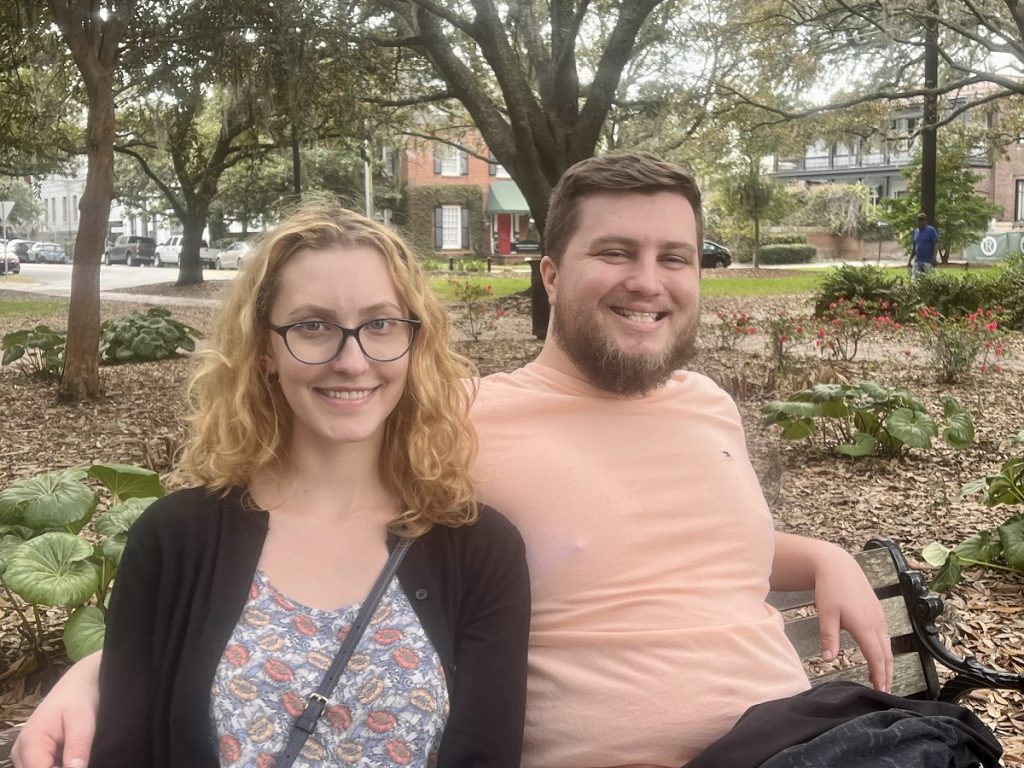
It also allowed him to “get on with his life.”
While he recognizes there are differences between in-person and online coursework, Sandlin credits professors Craig Albert, PhD, graduate director of the MAISS program, John Heslen, PhD, assistant professor in the MAISS program, and others for making that option successful in his eyes. He said they went above and beyond to bridge that gap into the online space.
Albert’s classes really put things in perspective and have intrigued Sandlin from the start.
“What makes Dr. Albert’s classes work so well is that translation of the weird political theory that sometimes kind of dips into the philosophic and sometimes theological seems to be interwinding at different branches yet translates to how they can be useful in the day-to-day situations and how they can really help you build yourself up personally,” said Sandlin.
He’s also made an impact on Albert with his cognitive abilities.
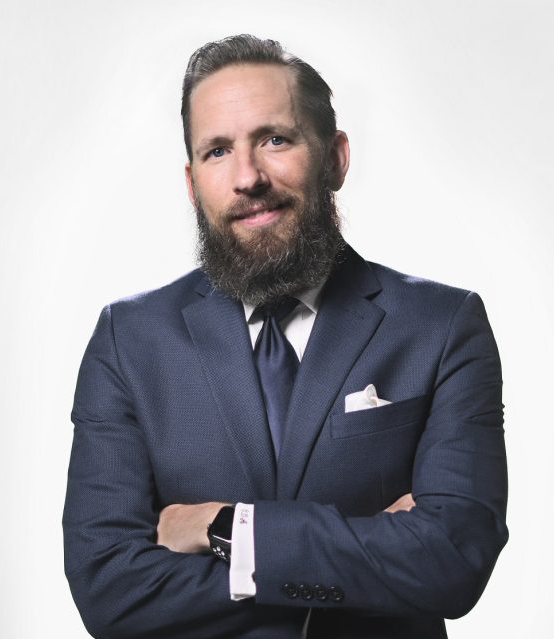
“I know for me, Grant has made me a better professor, by challenging my theoretical constructs and policy outlooks during several classes,” said Albert. “I have had the honor of teaching Grant as an undergraduate student and in MAISS, and I can honestly say that he has grown tremendously, not just in academics but as a complete human being. He’s going to make a huge contribution to the U.S. national security infrastructure one day and is already an asset to society.”
The program has also allowed Sandlin to expand his horizons along the way. He served as a graduate research assistant for the MAISS program and has been involved in some research projects, including presentations at major conferences and for peer-review manuscripts.
Most recently he worked with Gregg Murray, PhD, professor of political science in the Department of Social Sciences, on a paper titled “Crisis leadership and moral rhetoric after a foreign attack on the homeland: Zelenskyy, Bush, and Churchill.”
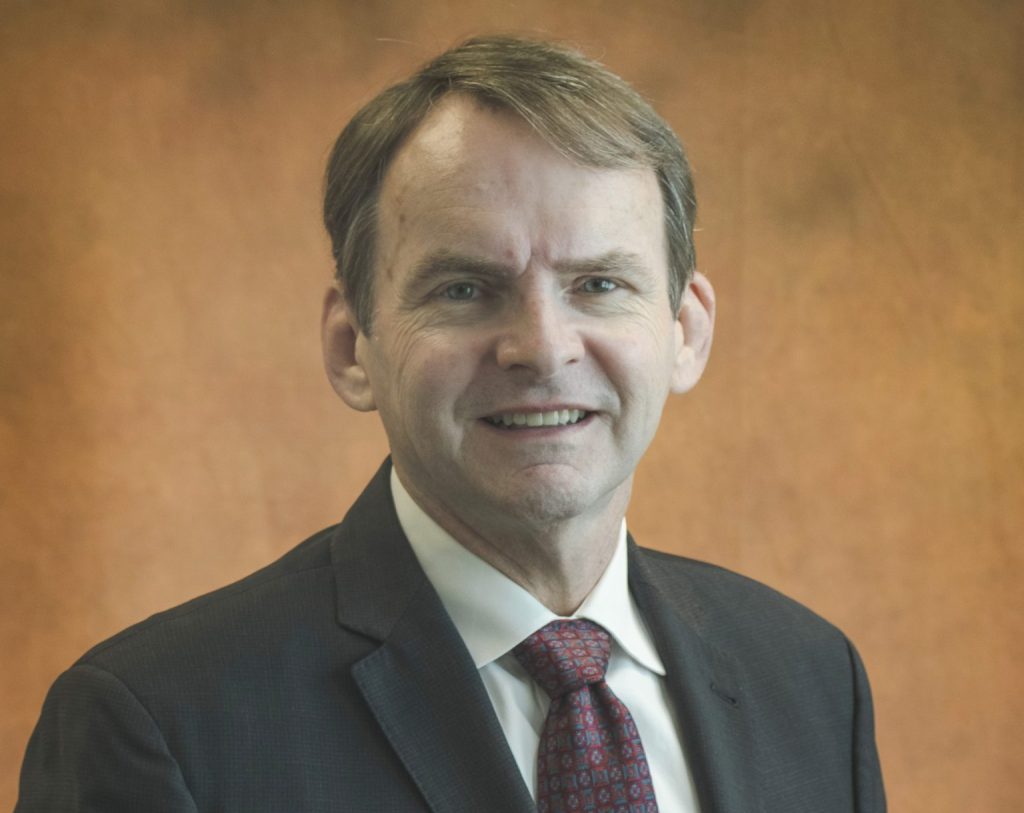
“Grantham energetically engaged the project and the topic,” said Murray. “We had to work through several challenges in this paper, and he really contributed to finding solutions. He’s a rigorous thinker and interested in doing good science. We worked with another university, and he represented Augusta University and the MAISS program well.”
“Dr. Murray is really great. He’s definitely got one of those analytical minds, and it’s been really fun to work with him on the content analysis and text analysis we’ve been doing,” Sandlin said.
Sandlin is still weighing his options for after graduation, but he expressed interest in working for a private security firm while not ruling out public relations or even teaching. He said the MAISS program has given him a number of avenues to take because his studies were about taking big ideas and translating them into summaries, and he feels the communications aspect of doing that is key.
Sandlin also said he wouldn’t mind moving back to Augusta since the area is brimming with job opportunities for those with a MAISS education.
For someone who questioned whether he’d get through college, he’s certainly glad he found MAISS and feels it will lead to bigger and better things in the not-so-distant future.
“I would say I’m extremely happy and satisfied with my college time, especially my master’s program, because it’s been trying to fundamentally change the way you think about certain issues and just the world itself in order to better filter through all the things you need to understand if you want to work in that field.”
 Augusta University
Augusta University
